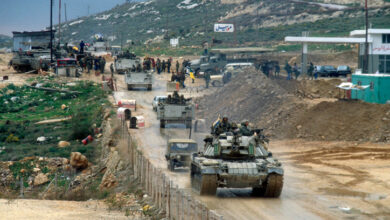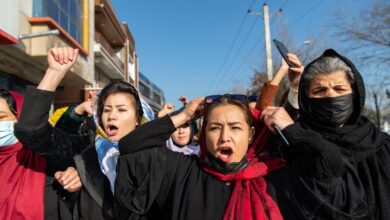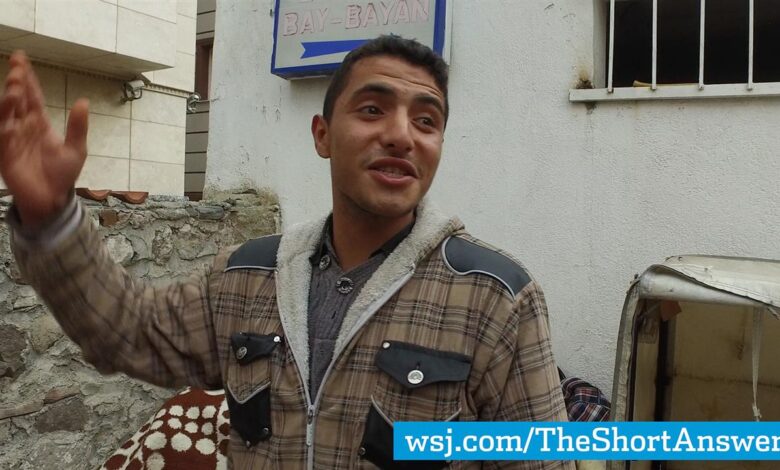
Turkey Deports Syrian Refugees to War Zone
Turkey is trying to deport Syrian refugees back to a war zone – a horrifying prospect that throws international law and basic human decency into sharp relief. This isn’t just about numbers; it’s about individual stories of families torn apart, lives shattered, and a desperate scramble for safety. We’re looking at a complex situation involving geopolitical tensions, humanitarian crises, and a stark disregard for the principles of non-refoulement.
This post dives into the heart of the matter, exploring the legal, ethical, and human consequences of these deportations.
The current security situation in Syria is dire, with ongoing conflict and instability making a return for many refugees unthinkable. Turkey, hosting millions of Syrian refugees for years, now faces immense pressure to manage its borders and resources. This has led to a policy shift, resulting in increased deportations that raise serious concerns about human rights violations. We’ll examine the legal arguments, the humanitarian crisis on the ground, and the international response to this escalating situation.
We’ll also hear directly from Syrian refugees themselves, sharing their experiences and fears.
The Legal and Ethical Dimensions of Deportations
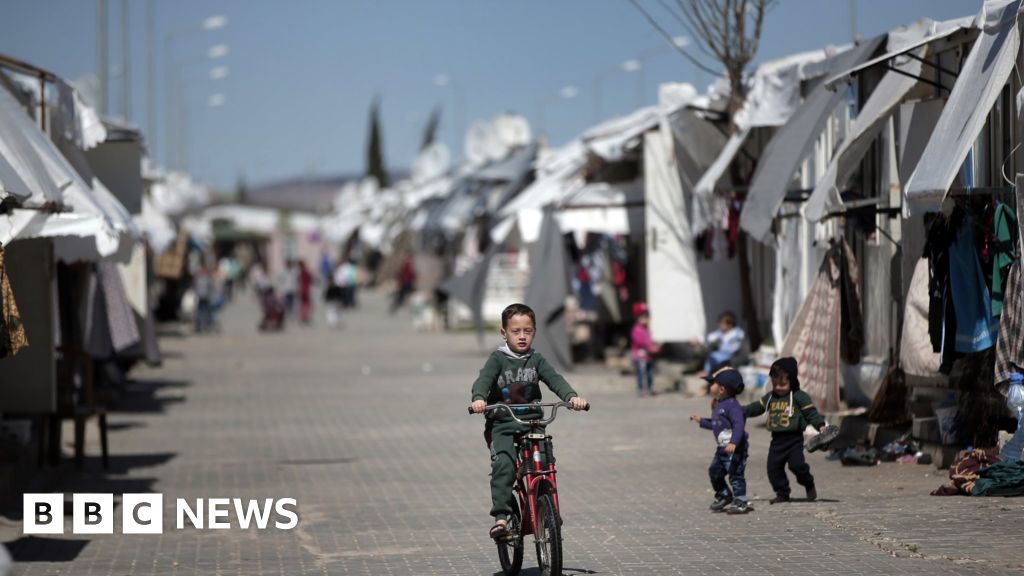
The ongoing situation of Syrian refugees in Turkey raises serious concerns regarding the legal and ethical implications of forced repatriation. Turkey’s actions must be evaluated against the international legal framework designed to protect refugees and prevent their return to harm. This analysis will examine the relevant legal principles and ethical considerations involved.
International Legal Framework Governing Refugee Repatriation
The cornerstone of international refugee law is the principle of non-refoulement, enshrined in Article 33 of the 1951 Refugee Convention and reiterated in numerous other international instruments, including the 1967 Protocol relating to the Status of Refugees and the 1969 OAS Convention. Non-refoulement prohibits a state from returning a refugee to a territory where their life or freedom would be threatened on account of their race, religion, nationality, membership of a particular social group, or political opinion.
This principle is considered a peremptory norm of international law, meaning it cannot be derogated from under any circumstances. The principle applies regardless of whether the individual has been formally recognized as a refugee. It mandates that states must provide adequate protection to individuals at risk of refoulement.
Specific Articles of International Human Rights Law Potentially Violated
Turkey’s deportation of Syrian refugees to a warzone could violate several articles of international human rights law. Article 3 of the Universal Declaration of Human Rights guarantees the right to life, while Article 7 prohibits torture and cruel, inhuman, or degrading treatment or punishment. Returning refugees to a conflict zone where they face a substantial risk of violence, persecution, or death directly contravenes these fundamental rights.
Additionally, Article 14 of the International Covenant on Civil and Political Rights guarantees the right to seek and enjoy asylum from persecution. Forcibly returning refugees to a country where their lives are in danger would be a clear violation of this right.
Legal Challenges Faced by Syrian Refugees Seeking Asylum in Turkey
Syrian refugees seeking asylum in Turkey face numerous legal hurdles. The asylum process can be lengthy and complex, with limited access to legal representation and often arbitrary decisions. Many refugees lack awareness of their rights and the procedures for seeking asylum. They may face difficulties in providing sufficient evidence to demonstrate a well-founded fear of persecution, particularly given the challenges of obtaining documentation from a war-torn country.
Legal recourse available includes appeals to Turkish courts and applications to UNHCR for resettlement in third countries, although these avenues are often fraught with challenges and uncertainties. One example is the difficulty in obtaining necessary documentation, such as birth certificates or identity papers, which are often destroyed or inaccessible in Syria.
Ethical Implications of Returning Refugees to a Conflict Zone
The ethical implications of returning refugees to a conflict zone are profound. Such actions violate the fundamental principles of human dignity, compassion, and the right to life. Returning individuals to a situation where they face imminent danger exposes them to a high risk of death, injury, torture, or other forms of serious harm. This constitutes a moral failure on the part of the state, which has a duty to protect the lives and well-being of those within its jurisdiction, regardless of their nationality or refugee status.
It also undermines international efforts to protect vulnerable populations and promotes a culture of impunity for those who perpetrate violence.
Turkey’s Actions Compared to Obligations Under International Refugee Law
Turkey, as a signatory to various international human rights treaties, has clear obligations under international refugee law to uphold the principle of non-refoulement and protect the rights of refugees within its territory. Its actions in deporting Syrian refugees to a war zone directly contradict these obligations. The sheer scale of the deportations, coupled with reports of violence and persecution faced by returnees, raises serious concerns about Turkey’s commitment to its international legal responsibilities.
This disregard for international law sets a dangerous precedent and undermines the global system for protecting refugees.
The Humanitarian Crisis in Syria and its Impact on Refugees
The ongoing conflict in Syria has created a devastating humanitarian crisis, forcing millions to flee their homes and seek refuge in neighboring countries, including Turkey. The situation is further complicated by Turkey’s recent moves to deport Syrian refugees, raising serious concerns about their safety and well-being. Understanding the current state of Syria and the challenges faced by Syrian refugees in Turkey is crucial to assessing the ethical and humanitarian implications of these deportations.
The Current Security Situation in Syria
Syria remains largely unstable, with ongoing conflict and violence in various regions. While some areas have experienced relative calm, many remain unsafe for the return of refugees. Active fighting continues in several provinces, and the threat of violence from various armed groups, including ISIS remnants, persists. Furthermore, the presence of landmines and unexploded ordnance poses a significant risk to civilians.
Reconstruction efforts are slow and uneven, and essential services remain lacking in many areas. The widespread destruction of infrastructure, including homes, hospitals, and schools, further exacerbates the precarious living conditions.
Syrian Refugees in Turkey and Potential Deportations
Turkey currently hosts the largest number of Syrian refugees globally, with estimates exceeding 3.6 million. The exact number of Syrian refugees facing potential deportation is difficult to ascertain, as official figures fluctuate and are often subject to political considerations. However, reports suggest that hundreds of thousands could be affected, depending on the scope and implementation of Turkey’s deportation plans.
Living Conditions and Challenges Faced by Syrian Refugees in Turkey
Before potential deportation, Syrian refugees in Turkey face numerous challenges. Many live in precarious conditions, often in overcrowded camps or informal settlements with limited access to basic services such as healthcare, education, and sanitation. Economic hardship is widespread, with many refugees struggling to find work and support themselves and their families. Social integration is also a significant challenge, with many refugees facing discrimination and xenophobia.
The uncertainty surrounding their legal status and future further adds to their stress and vulnerability.
Potential Risks Faced by Deported Refugees Upon Return to Syria
Returning to Syria poses significant risks for deported refugees. They may face violence from various armed groups, arbitrary detention, persecution based on their political affiliations or religious beliefs, and a lack of access to essential services such as healthcare and education. The destruction of homes and infrastructure in many parts of Syria means that returning refugees may find themselves homeless and without access to basic necessities.
The news about Turkey deporting Syrian refugees back to a war zone is heartbreaking; it feels like humanity is failing on a massive scale. Sometimes, I need an escape from such grim realities, so I find solace in exploring the wonders of nature, like diving into the untold magnificence of the deep ocean , a world untouched by our conflicts.
But then the image of those desperate refugees returns, a stark reminder of the urgent need for compassion and action.
They may also be vulnerable to exploitation and human trafficking.
Overview of Risks by Region in Syria, Turkey is trying to deport syrian refugees back to a war zone
| Region in Syria | Security Situation | Access to Essential Services | Risks for Returning Refugees |
|---|---|---|---|
| Idlib | Active conflict zone, presence of various armed groups | Severely limited; frequent disruptions | High risk of violence, arbitrary detention, lack of basic services, displacement |
| Aleppo | Relatively calmer than Idlib but still unstable; potential for sporadic violence | Partially restored in some areas, but uneven and limited in others | Risk of violence, limited access to services, potential for displacement, economic hardship |
| Deir ez-Zor | Presence of ISIS remnants and ongoing clashes | Very limited; infrastructure severely damaged | Extreme risk of violence, lack of essential services, potential for displacement |
| Rural Damascus | Mixed security situation; some areas relatively calm, others still unstable | Variable access; some areas better than others | Moderate risk of violence depending on the specific location; potential for displacement, economic hardship |
Turkey’s Security Concerns and Refugee Policy: Turkey Is Trying To Deport Syrian Refugees Back To A War Zone
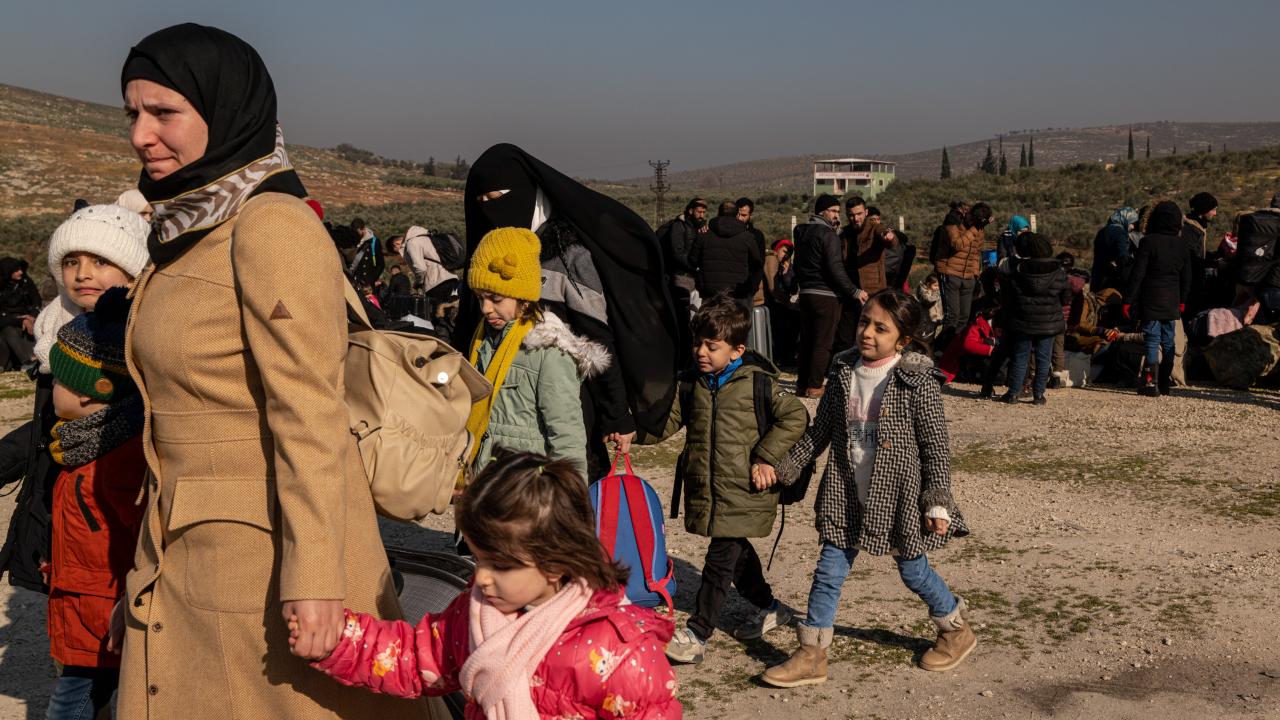
Turkey’s handling of the Syrian refugee crisis is a complex issue deeply intertwined with its geopolitical interests and security concerns. The sheer scale of the influx, coupled with the ongoing instability in Syria and the broader regional context, has significantly impacted Turkey’s domestic policies and international relations. Understanding Turkey’s perspective requires examining its rationale for its refugee policy and the evolution of its approach over time.Turkey’s geopolitical interests are fundamentally tied to regional stability.
The Syrian conflict, with its spillover effects including the rise of extremist groups and internal displacement, poses a direct threat to Turkey’s national security. The porous border with Syria allows for the easy movement of militants and weapons, fueling concerns about terrorism and cross-border attacks. Furthermore, the destabilization of Syria impacts Turkey’s economic interests, particularly its trade routes and regional influence.
This context informs Turkey’s approach to the refugee crisis, which balances humanitarian concerns with significant security considerations.
Turkey’s push to deport Syrian refugees back to a war zone is horrifying, and frankly, it’s a symptom of a larger problem. The EU’s response, or lack thereof, is hampered by its own internal struggles; reading this article about how a flailing economy has left the EU exposed to trumpian outbursts, a flailing economy has left the EU exposed to trumpian outbursts , really puts things into perspective.
This weakness makes it harder for them to effectively pressure Turkey, leaving vulnerable refugees even more at risk.
Turkey’s Rationale for Refugee Policy
Turkey’s refugee policy has evolved significantly since the beginning of the Syrian conflict. Initially, driven by humanitarian impulses, Turkey adopted a relatively open-door policy, accepting a large number of Syrian refugees. However, as the number of refugees increased dramatically, and the security situation deteriorated, the policy shifted towards a more restrictive approach, focusing on border control and managing the refugee population within its borders.
This shift reflects a growing concern over the strain on resources, the potential for social tensions, and the security risks associated with the large refugee population. The policy aims to balance humanitarian obligations with the need to maintain domestic stability and security.
Comparison of Turkey’s Refugee Policies
Early in the conflict, Turkey’s policy was largely characterized by a relatively open border and temporary protection for refugees. Syrians were granted access to basic services like healthcare and education, though integration into Turkish society was limited. This approach, however, proved unsustainable in the face of the prolonged conflict and the massive influx of refugees. Over time, Turkey implemented stricter border controls, introduced temporary protection status (TPS) which offers some legal protection but restricts movement and access to certain benefits, and initiated repatriation programs, albeit with limited success.
The news about Turkey deporting Syrian refugees back to a war zone is horrifying. It makes you wonder what constitutes actual insanity these days, especially considering the political climate. Reading Cal Thomas’ article on San Francisco’s new definition of political insanity – cal thomas san francisco has a new definition of political insanity you wont believe this one – only amplifies the feeling that we’re living in truly bizarre times.
The sheer callousness of sending vulnerable people back into danger is beyond comprehension.
The shift highlights the evolving challenges Turkey faces in managing the refugee crisis. The current policy emphasizes stricter border security, conditional integration, and a push towards repatriation to safe areas within Syria, reflecting a move away from the initial open-door approach.
Measures Taken to Address Refugee Needs
Turkey has undertaken considerable efforts to provide for the basic needs of Syrian refugees within its borders. This includes establishing refugee camps, providing food and shelter, and offering access to healthcare and education. However, challenges remain, including the long-term integration of refugees into Turkish society, addressing the needs of vulnerable groups such as women and children, and ensuring access to quality education and employment opportunities.
The government has invested significantly in infrastructure within refugee camps and established various programs to support education and vocational training. Despite these efforts, the scale of the crisis continues to pose significant challenges.
Timeline of Key Events
- 2011-2012: Initial influx of Syrian refugees into Turkey, characterized by a relatively open-border policy and humanitarian aid efforts.
- 2013-2015: Escalation of the Syrian conflict and a substantial increase in the number of refugees. Turkey establishes refugee camps and implements temporary protection measures.
- 2016-2018: Increased focus on border security and stricter regulations for refugee entry. The implementation of temporary protection status and the beginning of repatriation efforts.
- 2019-Present: Continued efforts to manage the refugee population, focusing on integration programs, vocational training, and the ongoing challenge of repatriation amidst continuing instability in Syria. Increased tensions and discussions regarding the potential return of refugees.
International Responses and the Role of the International Community
The international community’s response to Turkey’s deportation policy regarding Syrian refugees has been a complex mix of concern, pressure, and practical aid. While understanding Turkey’s security concerns and the immense burden it carries hosting millions of refugees, the international response has consistently emphasized the importance of adhering to international refugee law and ensuring the protection of vulnerable individuals. This response manifests in various forms, from diplomatic pressure to humanitarian assistance.
Several countries and international organizations have voiced strong criticism of Turkey’s actions, particularly the potential for refoulement – the return of refugees to a place where they face a serious threat to their life or freedom. The UNHCR, for example, has repeatedly called on Turkey to uphold its international obligations and refrain from deportations that violate the principle of non-refoulement.
Similarly, the European Union, a major donor of aid to Syrian refugees in Turkey, has expressed concerns and linked its financial assistance to Turkey’s adherence to international standards. Individual European nations have also voiced their disapproval through diplomatic channels.
International Pressure on Turkey
International pressure on Turkey has taken various forms, including diplomatic statements, targeted sanctions (though not widely implemented), and the threat of withholding financial aid. The EU, for instance, has repeatedly emphasized the importance of Turkey respecting international law regarding refugees in its discussions on financial aid packages. While direct sanctions have been limited, the potential for economic repercussions and damage to Turkey’s international reputation has served as a significant deterrent.
The implicit threat of reduced EU support for Turkey’s economy, already facing challenges, has been a powerful lever for influencing its refugee policy. Specific instances of diplomatic pressure are often communicated through official channels and press releases, but the full extent of behind-the-scenes negotiations remains largely undisclosed.
Humanitarian Assistance to Syrian Refugees
International humanitarian organizations, such as the UNHCR, the International Committee of the Red Cross (ICRC), and numerous NGOs, play a crucial role in providing assistance to Syrian refugees both in Turkey and within Syria itself. These organizations deliver essential services, including food, shelter, medical care, and education. Their work is often challenging, hampered by security concerns, bureaucratic obstacles, and funding limitations.
However, they continue to provide vital support to millions of vulnerable individuals, mitigating the suffering caused by the ongoing conflict and displacement. Their efforts focus on both emergency relief and longer-term development programs aimed at promoting self-reliance and integration within host communities. For example, the UNHCR provides legal assistance to refugees, helps them access asylum procedures, and advocates for their rights.
Consequences of Turkey’s Actions on Regional Stability and International Relations
Turkey’s deportation policy carries significant risks to regional stability and international relations. The potential for increased humanitarian suffering and further displacement could destabilize neighboring countries and exacerbate existing tensions. Damage to Turkey’s international reputation could negatively impact its diplomatic relations and economic partnerships. Moreover, the policy undermines international efforts to address the Syrian refugee crisis and sets a concerning precedent for other countries facing similar challenges.
A resurgence of large-scale refugee movements, driven by forced deportations, could strain resources in neighboring countries and potentially trigger new conflicts. The potential for human rights abuses during deportations further tarnishes Turkey’s image on the global stage.
Proposed Plan for International Cooperation
A comprehensive and sustainable solution requires a multi-pronged approach based on international cooperation. This includes: (1) Increased financial and technical support for Turkey to manage the refugee influx, focusing on improving refugee camps and integration programs; (2) Strengthening efforts to promote voluntary repatriation to Syria, contingent on ensuring safety and security in areas of return; (3) Expanding resettlement opportunities in third countries to alleviate the burden on Turkey; (4) Increased support for the reconstruction of Syria to facilitate safe and dignified returns; and (5) Strengthening international legal frameworks to ensure the protection of refugees and prevent refoulement.
This collaborative effort necessitates a commitment from all stakeholders, including Turkey, the EU, other donor countries, and international organizations, to create a durable solution that respects human rights and promotes regional stability.
The Voices of Syrian Refugees
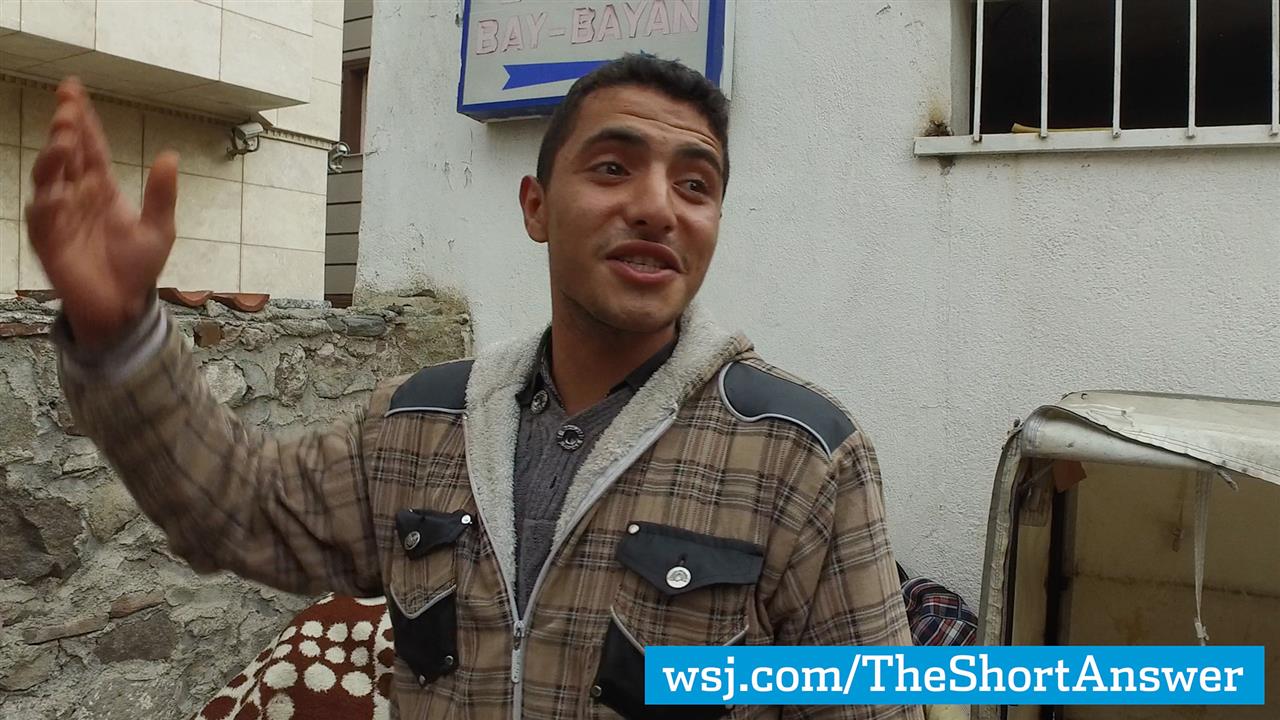
The threat of deportation hangs heavy over the Syrian refugee community in Turkey, casting a long shadow on their lives and fueling profound anxieties. Understanding their experiences is crucial to grasping the full human cost of this policy. The following accounts, while not exhaustive, offer a glimpse into the fear, uncertainty, and desperation felt by those facing potential repatriation to a war-torn homeland.
Experiences of Syrian Refugees Facing Deportation
The stories of Syrian refugees facing deportation reveal a shared narrative of trauma, displacement, and the constant fear of losing everything they have painstakingly rebuilt in Turkey. These accounts highlight the diversity of experiences within the refugee population, emphasizing the individual struggles and shared anxieties.
“We fled Syria to escape the bombs, the violence, the constant fear. We thought we had found safety in Turkey, but now we are afraid again. Returning to Syria means risking our lives. My children have nightmares about the war. What will happen to them if we go back?”
Aisha, a mother of three from Aleppo.
“I have built a small business here. I have friends, a life. To be sent back to Syria, where my family’s home is destroyed and my prospects are nonexistent, is unthinkable. It would be like starting from scratch, but without the hope or the possibility of a future.”
Omar, a former tailor from Damascus.
“The uncertainty is the worst part. We live in constant fear of a knock on the door, a sudden arrest, the separation from everything we know. It’s a constant state of anxiety that affects every aspect of our lives.”
Layla, a young woman living in Istanbul.
Concerns and Fears Regarding Return to Syria
The primary concerns voiced by Syrian refugees facing deportation center on safety and security. Many fear for their lives and the lives of their families, given the ongoing conflict and instability in Syria. Concerns extend beyond immediate physical safety to include access to basic necessities like food, shelter, healthcare, and education. The prospect of returning to destroyed homes or lacking the means to rebuild their lives is a significant source of anxiety.
Furthermore, many fear persecution due to their political affiliations or religious beliefs.
Psychological Impact of the Threat of Deportation
The constant threat of deportation has a devastating psychological impact on Syrian refugees and their families. Many experience chronic stress, anxiety, depression, and post-traumatic stress disorder (PTSD), exacerbated by the uncertainty and fear of the unknown. Children are particularly vulnerable, suffering from nightmares, separation anxiety, and developmental delays. Families are torn apart by the constant worry and the fear of separation.
The cumulative effect of these psychological pressures can have long-term consequences on mental and physical health.
Visual Representation of a Refugee’s Emotional Journey
Imagine a canvas depicting a journey across a turbulent sea. The initial stage shows a vibrant, colorful depiction of life in Syria before the war – a family gathered around a table, children playing, a bustling marketplace. As the painting progresses, the colors darken, becoming muted and somber, reflecting the chaos and destruction of war. The central figure, a Syrian refugee, is shown clinging to a small, battered raft, the waves representing the uncertainties and hardships faced during their escape and resettlement in Turkey.
The final section of the canvas shows the figure gazing back at a distant, dark, and uncertain shore—Syria—with a mixture of fear and despair etched on their face. The contrast between the vibrant beginning and the somber ending powerfully visualizes the emotional turmoil and uncertainty faced by the refugee.
The forced return of Syrian refugees to a war zone is a deeply troubling issue with far-reaching consequences. The ethical and legal ramifications are undeniable, and the human cost is devastating. While Turkey faces its own challenges, the international community must hold it accountable to its obligations under international law. The plight of these refugees demands urgent action and a concerted effort to find safe and sustainable solutions.
This isn’t just a political issue; it’s a humanitarian crisis that requires our collective attention and compassion.


